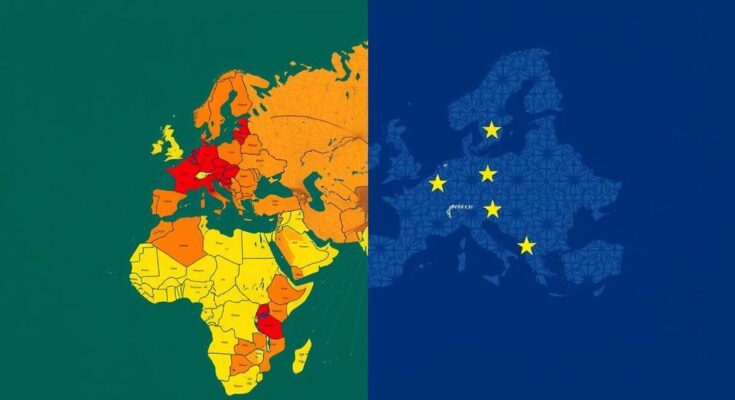Africa has a glaring research gap with only 20 health researchers per million people, significantly lower than Europe’s 246. Challenges include limited post-doctoral opportunities, language barriers, gender inequality, and inadequate mentoring. To close this gap, fostering equitable partnerships, supporting local researchers, and addressing female representation in research are crucial steps forward.
Africa faces a significant science research gap, with only 20 health researchers per million people, compared to Europe’s 246. This disparity reflects the continent’s underinvestment in research and post-doctoral training. While funding for PhDs has increased, opportunities for career advancement and mentorship remain limited. Additionally, barriers such as language diversity, gender inequality, and inadequate local research infrastructure exacerbate the situation. Improving equitable international partnerships and supporting local researchers are crucial to bolstering Africa’s research capacity. To address these issues, initiatives such as the Africa Research Excellence Fund’s training programs and women’s leadership schemes are essential. Emphasizing localized knowledge and fostering collaborative environments will ultimately empower African researchers to drive health advancements in their communities.
Scientific research in Africa has historically lagged behind that of other regions, contributing to a global inequity in research capabilities. Despite recent improvements in funding for doctoral studies, significant gaps remain in post-doctoral opportunities and support systems for emerging researchers. This situation is further complicated by linguistic barriers, especially for those outside of the English-speaking sphere, and persistent gender inequalities that hinder women’s participation in research. Addressing these challenges is imperative to not only enhance health outcomes in Africa but also to build a sustainable research environment.
In conclusion, to bridge the research gap in Africa, it is essential to establish equitable international and local partnerships that prioritize the contributions of African researchers. By focusing on training, mentorship, and addressing gender disparities, the continent can transform its research environment. Initiatives like those from the Africa Research Excellence Fund are steps in the right direction, establishing a foundation for Africa to lead in health research and innovation.
Original Source: www.weforum.org




